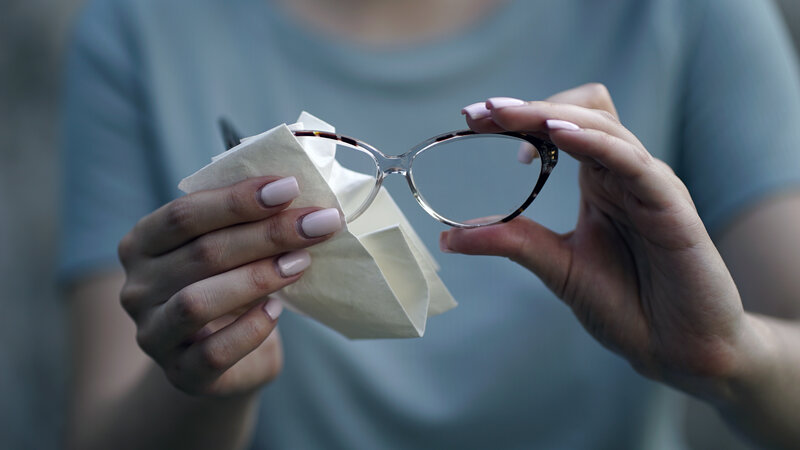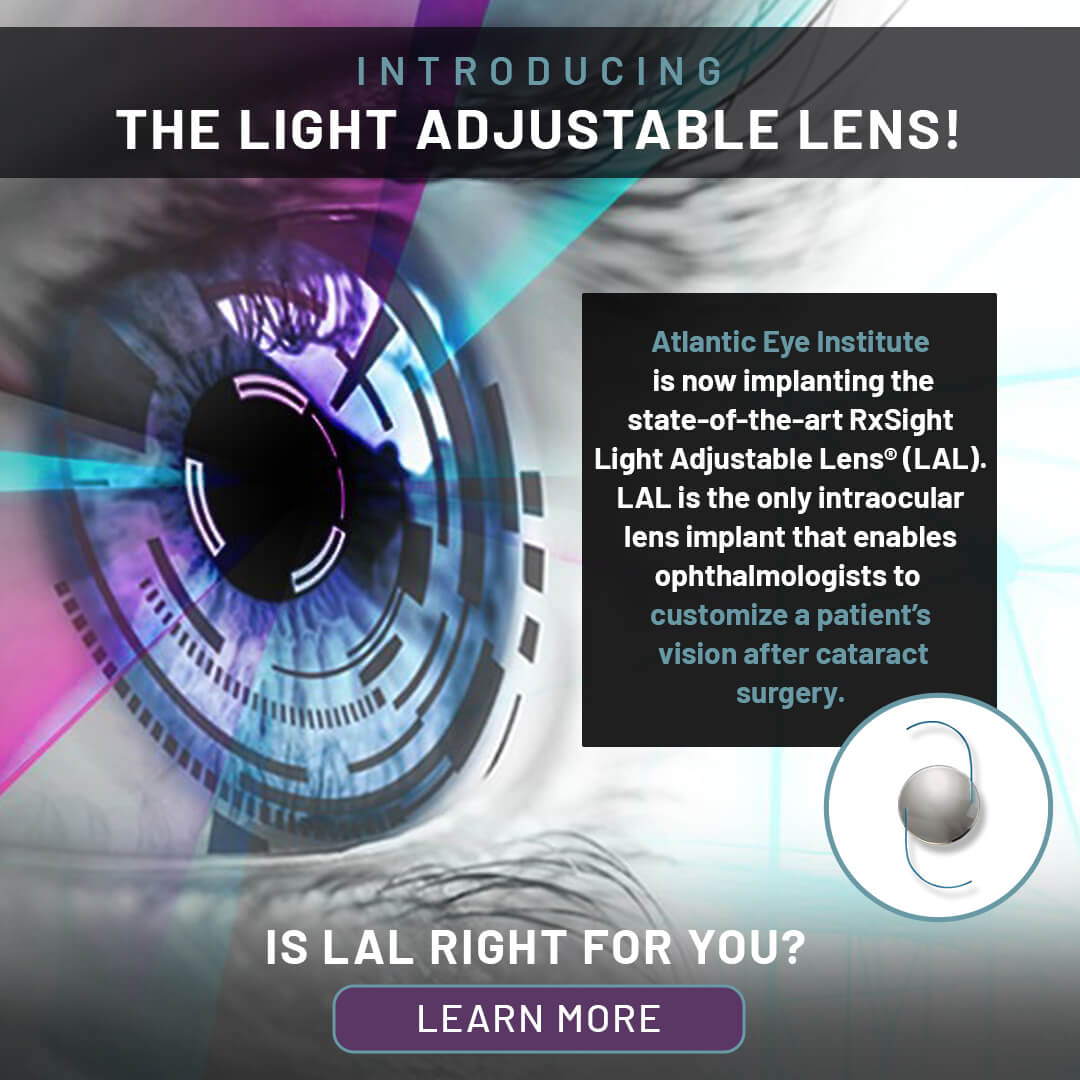Eyeglasses aren’t cheap, and we know it can be tempting to bypass the different eyeglass lens coatings available when you order a new pair of prescription lenses. However, when you consider that most adults don’t experience significant changes in their vision for two to three years – or more – at a time, some lens coatings are a minimal investment that protects the life of your glasses.
That said, others may not be necessary, and there’s no point in spending money on a coating you don’t need. That’s why we’ve put together this list of the most common eyeglass coatings, explaining what they do and who they serve best.
6 Common Eyeglass Lens Coatings
In the beginning, eyeglass lenses were made from plain, handmade glass – without scratch or break protection. Today, most glasses are made from synthetic materials and come in a range of protective coating options to optimize their function and protect the surface until you need a replacement.
Here are six of the most common coating options for eyeglass lenses.
Scratch-resistant coatings
This one is certainly worth the extra money. It only takes a few unfortunately located scratches to impair your vision. This coating bolsters the surface of the lenses, making it harder to scratch them if you drop your glasses, clean them with an abrasive cloth, are exposed to dust blowing in the wind, etc.
As you can imagine, children, young adults, and those working outside should invest in scratch-resistant coatings. That said, pay close attention. Many lenses are automatically more scratch-resistant than others, such as high-index lenses and polycarbonate lenses. In that case, you won’t need an extra coating.
Note: There is no such thing as a scratch-proof lens or coating. Even with this extra layer of protection, you want to take good care of your glasses, keeping them inside the case when they aren’t worn and cleaning them using the cloth and cleanser provided by your eyeglass manufacturer.
Tinting and blue-blocking options
Tinted lenses are most common in sunglasses or outdoor safety glasses, protecting the eyes from the sun’s glare year-round. However, the rising use of screens – which radiate blue light – has created an uptick in various user side effects. This includes eye strain, headaches, or difficulties sleeping after working on a screen. In addition, those who are sensitive to screen light and use may also experience consistent agitation during and after using screens.
Lens manufacturers now offer lens coatings that block blue light waves. We highly recommend selecting blue-light protective coatings for children who use screens, gamers, and adults who work online or spend lots of time on gadgets or watching TV.
Tinted coatings can be selected in any shade, as well as transitional options that automatically transition from clear to tinted depending on light exposure. These options are great for kids with difficulty keeping track of “indoor” and “outdoor” glasses. Getting your child transitional tinted lenses means they only need one durable pair, and we can find a comfortable strap to keep them attached to the face and body at all times.
UV protective coating
UV light damages the eyes. For most of us, that damage happens in small increments – little by little. However, those who work outdoors, play in the sun, or like to spend time on the slopes in the winter are at higher risk for developing faster and more serious sun-related eye damage. UV protective coatings block harmful UV light waves, which goes a long way toward protecting your eyes.
Anti-reflective or glare protection
Do you struggle with light sensitivity? Has night blindness made it more difficult for you to drive after sunset – exacerbated by those frustrating halos around lights? If so, we recommend saying “yes,” to anti-reflective (AR) or glare-protective eyeglass lens coatings. These coatings are typically applied to the lenses’ front and back and absorb the light, so you don’t see the glare. These are also good for photographers or artists because less glare means great depth and contrast in any given scene.
Anti-fog eyeglass lens coatings
Anyone who wears glasses knows how frustrating it can be when an “instant fog” takes over the lenses. This is likely to happen on colder or damp days when your face is hot or sweaty. Those who drink hot beverages also experience repeat fog on the lenses when they take a steamy sip.
Anti-fog coatings are the antidote and are mostly used by athletes, police officers, and first responders who can’t afford to have their vision blocked during transitions from indoors/outdoors and hot/cold, as well as those who work outside.
Mirrored lenses
These are most typically added to sunglasses as an extra layer of glare protection. However, mirrored lenses also come and go in terms of trends. Some professionals, such as police officers, also appreciate that mirrored lenses prevent people from looking into their eyes, helping them maintain a more neutral front.
Tips For Selecting The Right Lenses And Coatings
If you opt to get your eyeglasses through your optometrist, they’ll walk you through your options. However, we know many patients take their prescriptions elsewhere to save money. In this case, you may not get the same level of attention and honesty that you would through your optometrist.
If you go through a separate eyeglass vendor, we recommend the following:
- Consider how and where you’ll use your eyeglasses to get what you need without unnecessarily over-coating yourself.
- Ask about pricing. Name-brand coatings don’t always work that much better than generic options, so there’s no point in paying more for a particular trademark. Your optometrist can also tell you which brands are worth the extra money and which aren’t.
- Get a printed, itemized listing of your lens options. Sometimes manufacturers offer bundles – such as eyeglasses that include scratch-resistance and anti-glare options. Know what’s available in bundled options to save money on individual add-ons.
- Be wary of pressure or “the hard sell.” This process is about getting you what you need to enhance your vision and protect your eyes. There shouldn’t be any hard sales. If you feel pressured, take time and review the option at home. Then, call back to order what you want.
Atlantic Eye Insitute Helps Patients Choose The Right Coatings
Here at the Atlantic Eye Institute, we help patients select lenses and coatings that are exactly right for their lifestyles and needs. We never upsell. Contact us to schedule your next eye exam or to order your next set of eyeglasses.

